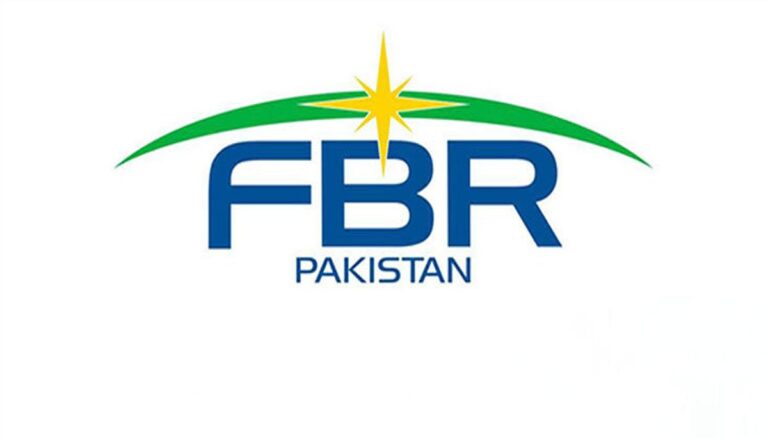
The real estate market in Pakistan has seen its share of ups and downs. Several factors, such as high taxes, inflation, and economic uncertainty, have influenced its growth. However, one significant factor that has made a positive impact is the FBR’s tax relief policies. These initiatives aim to support the recovery of the real estate sector. In this article, we will explore how FBR’s tax relief is benefiting the market and property investors.
What is FBR’s Tax Relief?
The Federal Board of Revenue (FBR) is the government body responsible for collecting taxes in Pakistan. Over the years, FBR has introduced various tax relief measures to ease the burden on the real estate sector. These policies are designed to encourage investment, foster growth, and make it easier for developers and investors.

Recently, FBR introduced several tax relief measures, including:
- Reduced property taxes: FBR has reduced property taxes for both residential and commercial properties. This move aims to stimulate investment and growth in the sector.
- Tax exemptions for developers: Developers who build housing projects receive tax exemptions or reduced rates. This helps them build more affordable homes and increase the supply of properties.
- Tax amnesty schemes: FBR has launched amnesty schemes, allowing property buyers and sellers to declare their assets without facing penalties. This helps people bring hidden assets into the formal economy.
How FBR’s Tax Relief is Impacting the Real Estate Market
1. Increased Investor Confidence
One of the major benefits of FBR’s tax relief is that it boosts investor confidence. In the past, high taxes and complex regulations kept many potential investors away. With the reduction in property taxes and tax exemptions for developers, investors feel more confident. They are assured that their returns will not be reduced by excessive taxes.
The tax relief measures also encourage investors to explore new opportunities. As more people invest in real estate, the demand for properties increases, which helps the market recover and grow.
2. More Property Transactions
The reduction in taxes and the introduction of tax amnesty schemes have led to more property transactions. Buyers and sellers who were once hesitant due to tax concerns are now willing to make deals. This increases liquidity and contributes to overall market growth.
Additionally, FBR’s tax relief has made property transactions more transparent. Buyers can now navigate the market more easily, knowing there are fewer hidden costs or surprise tax hikes.
3. Encouraging Real Estate Development
FBR’s tax relief has also encouraged developers to build more properties. Tax exemptions have lowered construction costs, making it easier to build new housing projects. As a result, developers are more willing to invest in construction, increasing the supply of residential and commercial properties.
This increase in property supply helps meet the growing demand for housing in cities like Lahore, Karachi, and Islamabad. With more options available, homebuyers can find the property that best suits their needs.
4. More Affordable Housing Projects
Tax exemptions for developers have also led to more affordable housing projects. With reduced taxes, developers can lower construction costs and offer homes at more affordable prices. This is especially important in Pakistan, where there is a significant demand for affordable housing.
The government’s focus on affordable housing has also played a major role in reviving the real estate market. By encouraging developers to build affordable homes, FBR is helping address the housing shortage and making quality housing more accessible.
5. Boosting Economic Growth
The recovery of the real estate market, driven by FBR’s tax relief, has had a positive impact on Pakistan’s economy. The real estate sector is a significant contributor to the country’s GDP. When this sector grows, it benefits other industries, such as construction, manufacturing, and retail.
As properties are bought, sold, and developed, the demand for construction materials, labor, and related services increases. This creates jobs, helps local businesses, and stimulates the economy. Additionally, the rise in property transactions leads to higher tax revenues for the government, which can be used to improve other sectors of the economy.
Challenges Still Remain
Even though FBR’s tax relief has helped revive the real estate market, challenges persist. The property market is still affected by factors such as inflation, political instability, and economic uncertainty. These factors can sometimes limit the effectiveness of tax relief measures, as investors may hesitate to invest in an unstable environment.
Moreover, while tax relief has encouraged more investment, it is crucial for the government to maintain long-term stability. Frequent changes in tax policies or sudden hikes in property taxes could discourage investors and slow market growth.
Conclusion
In conclusion, FBR’s tax relief has played a vital role in reviving Pakistan’s real estate market. By reducing property taxes, providing tax exemptions for developers, and introducing tax amnesty schemes, the government has created a more favorable environment for investment. This has led to increased investor confidence, more property transactions, and more affordable housing projects.
While challenges remain, tax relief policies are helping to stabilize and grow the real estate market. This growth also benefits Pakistan’s economy. As long as the government continues to support the real estate sector, the future of the market looks promising.